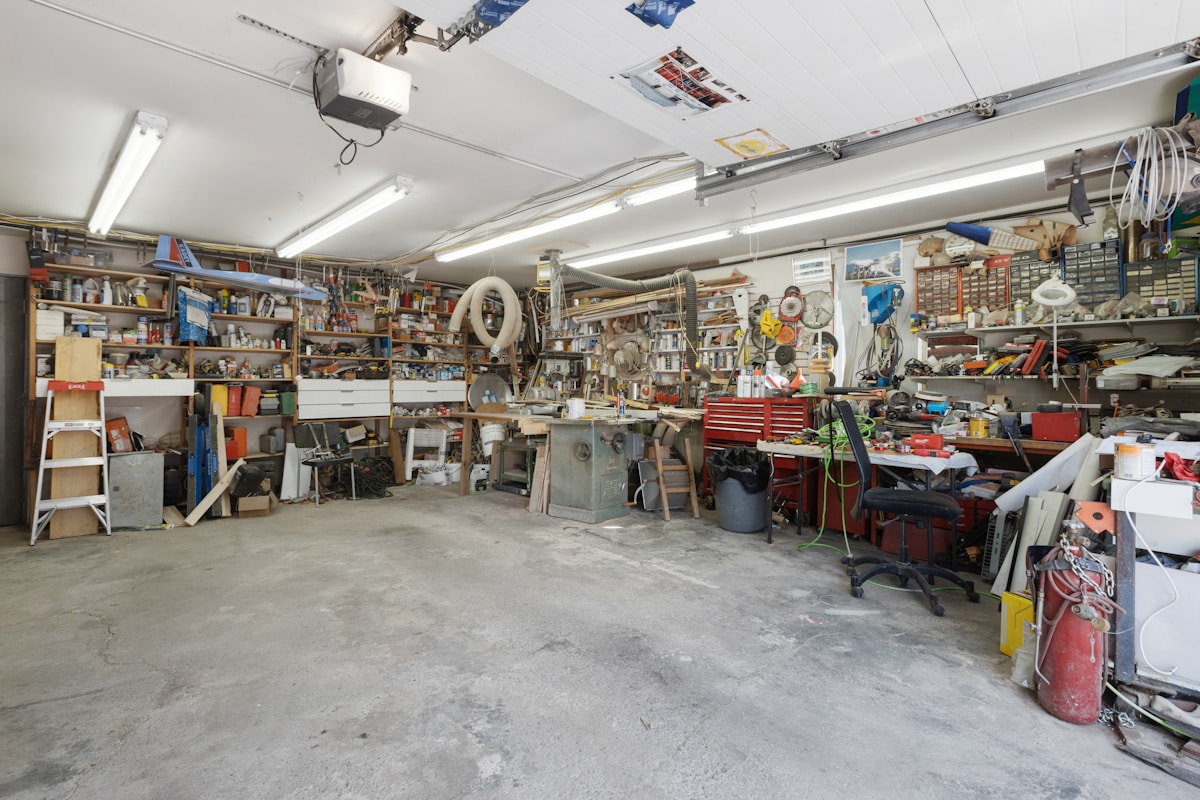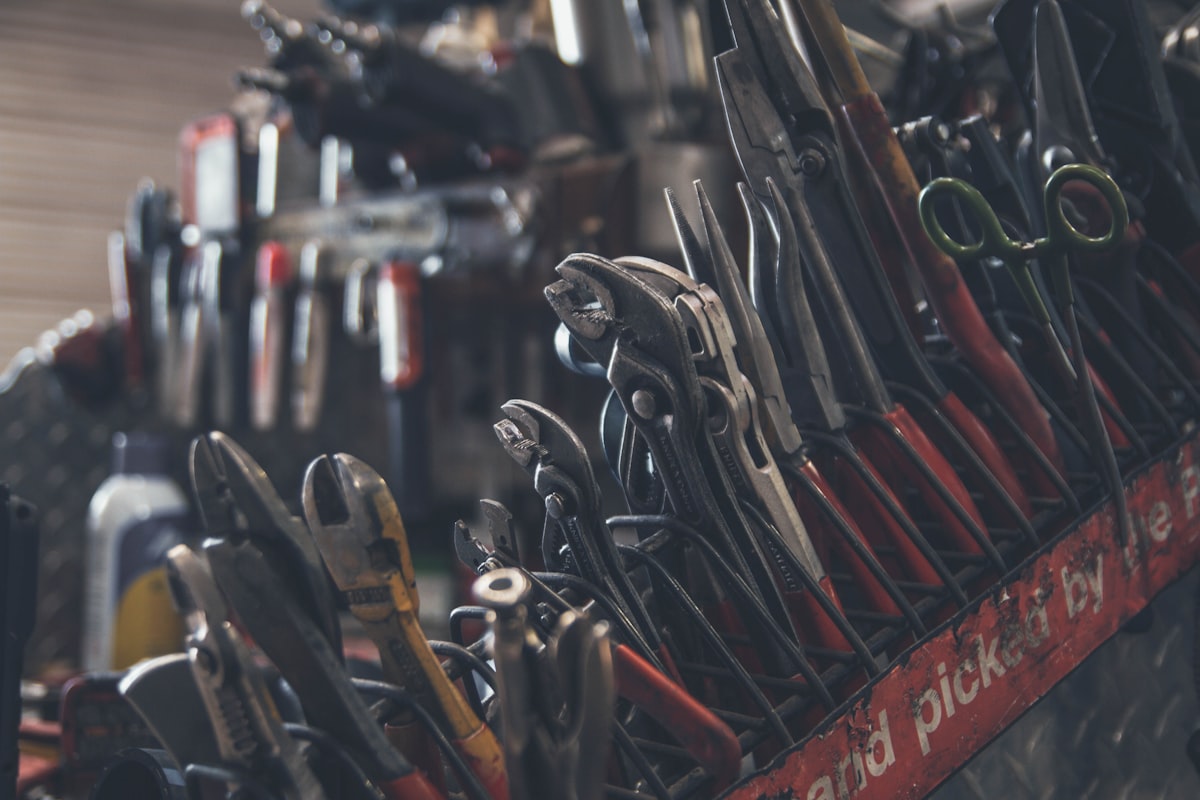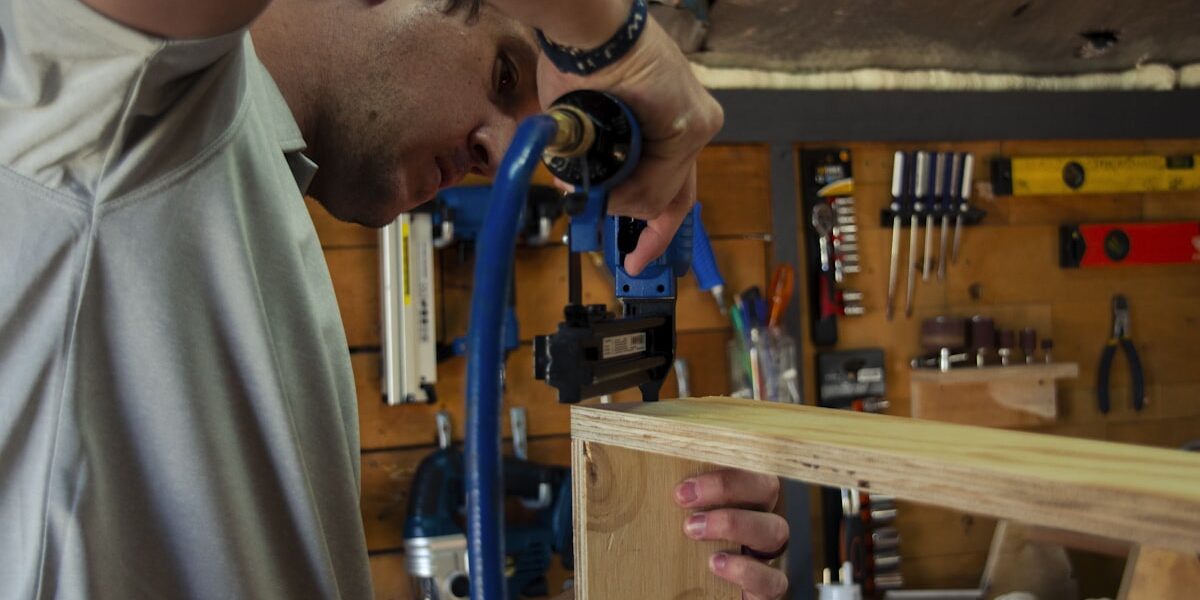Understanding Shop Heaters: A Comprehensive Guide
Shop heating has gotten complicated with all the options and opinions flying around. As someone who has spent twenty-plus years working in unheated garages and purpose-built workshops, I learned everything there is to know about keeping warm while making sawdust. Today, I will share it all with you.
I remember my first winter in a detached garage shop — fingers so cold I could barely grip a chisel, and my finish work suffered because the poly wouldn’t cure right. That’s when I got serious about heating, and I’ve tried just about every type since then.
Types of Shop Heaters
There are more heater styles out there than species of hardwood, I swear. Each one has trade-offs. Let me walk you through what I’ve actually used and what I’ve seen in other guys’ shops over the years.
Electric Heaters
Electric heaters are where most of us start. You plug them in and they work. No gas lines, no venting headaches. I ran one in my first shop for about three years before I outgrew it.
- Convection Heaters: These warm the air in the room and use fans to push it around. They do a decent job in enclosed spaces. My buddy runs a couple of these in his 400-square-foot shop and stays pretty comfortable through Minnesota winters. The downside? They take a while to get things warm, and if your insulation is garbage, you’re basically heating the outdoors.
- Radiant Heaters: These shoot infrared radiation that heats objects directly instead of the air. I actually prefer these for quick sessions — walk in, flip it on, and you feel warmth on your hands almost immediately. Great when you just need to pop in for an hour to finish a glue-up.
Gas Heaters

Gas heaters — whether natural gas or propane — are the workhorses of larger shops. They’re cheaper to run than electric in most areas, and they throw serious heat. I switched to a propane forced-air unit in my second shop, and the difference was night and day. That said, you absolutely need proper ventilation. No exceptions.
- Forced Air Gas Heaters: These push hot air through a fan and heat spaces fast. I’m talking “walk in and it’s comfortable in fifteen minutes” fast. Perfect for bigger workshops. The noise can be a bit much though — mine sounds like a small jet engine when it kicks on.
- Infrared Gas Heaters: Same concept as electric radiant heaters but powered by gas. Really effective for spot heating. A fellow woodworker I know mounted one above his assembly table and swears by it for winter glue-ups.
Oil-Filled Heaters
These portable units use oil as a heat reservoir, and honestly, they’re underrated. I keep one under my workbench as a supplement. They’re quiet — dead silent, actually — and the oil holds heat even after you switch them off. For a smaller shop or as a secondary heat source, they’re solid. Won’t break the bank on electricity either.
Wood Stoves

There’s something deeply satisfying about heating your woodshop with wood. Call it poetic justice. I had a wood stove in my rural shop for about five years, and when it was cranking, that shop was the coziest place on the property. You do need a steady firewood supply, and installation has to follow local codes — chimney clearances, floor protection, all of it. But if you’re in a rural area with free or cheap wood? Hard to beat.
One word of caution: sawdust and open flames don’t mix well. I kept my stove far from my dust collection and swept religiously around it.
Factors to Consider When Choosing a Shop Heater
Probably should have led with this section, honestly. Picking the wrong heater wastes money, and I’ve done it. Twice. Here’s what actually matters when you’re deciding.
Shop Size and Layout
This is the big one. My 600-square-foot shop needs a very different setup than my neighbor’s 200-square-foot garage bay. Larger spaces demand more BTUs, period. And layout matters too — an open floor plan distributes heat differently than a shop with walls dividing a finishing room from the main workspace. Measure your space, figure out the cubic footage, and size your heater accordingly.
Insulation
I cannot overstate this. Before I insulated my shop walls and ceiling, my propane heater ran constantly and the bill was painful. After spending a weekend with fiberglass batts and a staple gun, my heating costs dropped by roughly a third. Check your windows, doors, and anywhere air might sneak through. Weather stripping is cheap. So is spray foam for gaps around outlets and pipe penetrations.
Fuel Availability and Cost
Where you live changes the math completely. Electricity is expensive in some regions, dirt cheap in others. Natural gas lines aren’t available everywhere. Propane delivery might not be convenient in your area. I’d suggest calling your local utility and a propane supplier to compare real numbers before committing. What works for a guy in Texas might bankrupt you in New England.
Ventilation and Safety
Any combustion heater — gas, propane, wood — produces byproducts you don’t want to breathe. Carbon monoxide is the silent killer everyone warns about, and they’re right to. You need ventilation. You need CO detectors. That’s what makes shop heating endearing to us woodworkers — we get to solve problems, and this one matters because it keeps us alive.
Installation and Maintenance
Portable electric units are dead simple. Plug in, done. Gas heaters? Unless you really know what you’re doing, hire a pro for the gas line work. I did my own propane run once and the inspector made me redo half of it. Lesson learned. Whatever you install, maintain it yearly. Clean the filters, check connections, and inspect for wear. A well-maintained heater lasts decades.
Energy Efficiency Tips
Nobody wants to burn money. Here’s what’s worked for me over the years:
- Use Programmable Thermostats: I set mine to drop to 45 degrees overnight — just warm enough to protect finishes and glue bottles from freezing — and ramp up an hour before I head out to the shop. Saves a ton.
- Seal Leaks: Grab an incense stick on a cold day and hold it near windows, doors, and outlets. Watch the smoke. You’ll find leaks you never knew existed. Seal every last one.
- Periodic Maintenance: Dust is our constant companion in a woodshop, and it clogs heater components fast. I blow out my heater with compressed air once a month during winter. Takes five minutes and keeps it running right.
Safety Considerations
I’m going to be blunt here. A woodshop is full of flammable dust, finishes, and solvents. Adding a heat source to that environment means you need to take safety dead seriously.
Fire Hazards
Keep heaters away from your lumber rack, your finish shelf, and anywhere dust accumulates. I’ve got a ten-foot clearance rule around my propane heater and a fire extinguisher mounted on both sides of the shop. Overkill? Maybe. But I’ve heard enough horror stories from other woodworkers to not take chances.
Carbon Monoxide Risk
Install CO detectors. Plural. I’ve got two in my shop at different heights. Make sure gas heaters are vented properly, and never — I mean never — run an outdoor-rated propane heater inside a closed shop. A guy at my local woodworking club did this and ended up in the ER. Just don’t.
Electrical Safety
Electric heaters pull serious amperage. Make sure you’re on a dedicated circuit with the right gauge wire. Don’t daisy-chain extension cords. Don’t use a frayed cord and tell yourself you’ll replace it next week. I check mine at the start of every heating season and replace anything questionable.
Popular Brands and Models
I’ve personally used or been around all three of these, and they’re solid picks:
- Mr. Heater: Their portable propane units are everywhere for good reason. The Big Buddy is practically standard issue in garage shops. Reliable, affordable, and easy to find replacement parts.
- Dyna-Glo: Makes both gas and electric options. Good efficiency ratings, and their customer service has been decent the couple times I’ve dealt with them.
- King Electric: If you’re going the electric route, King makes some well-built units with smart safety features. A bit pricier, but the build quality justifies it in my experience.
Environmental Impact
Worth thinking about, even if it’s not the first thing on most woodworkers’ minds. Energy-efficient heaters mean less fuel burned and lower emissions. If you’re on solar or wind power at home, running an electric shop heater is about as clean as it gets.
Adjustable settings help too. No sense running your heater full blast when a lower setting keeps things comfortable. And again — maintenance. A clean, well-tuned heater uses less fuel for the same output. Good for your wallet, good for the planet.
At the end of the day, there’s no single best shop heater. It depends on your space, your climate, your budget, and what fuel makes sense where you live. Take the time to figure out what fits your situation, prioritize safety, and you’ll end up with a warm shop that lets you work comfortably year-round. That’s the whole point, right?
Recommended Woodworking Tools
HURRICANE 4-Piece Wood Chisel Set – $13.99
CR-V steel beveled edge blades for precision carving.
GREBSTK 4-Piece Wood Chisel Set – $13.98
Sharp bevel edge bench chisels for woodworking.
As an Amazon Associate, we earn from qualifying purchases.

